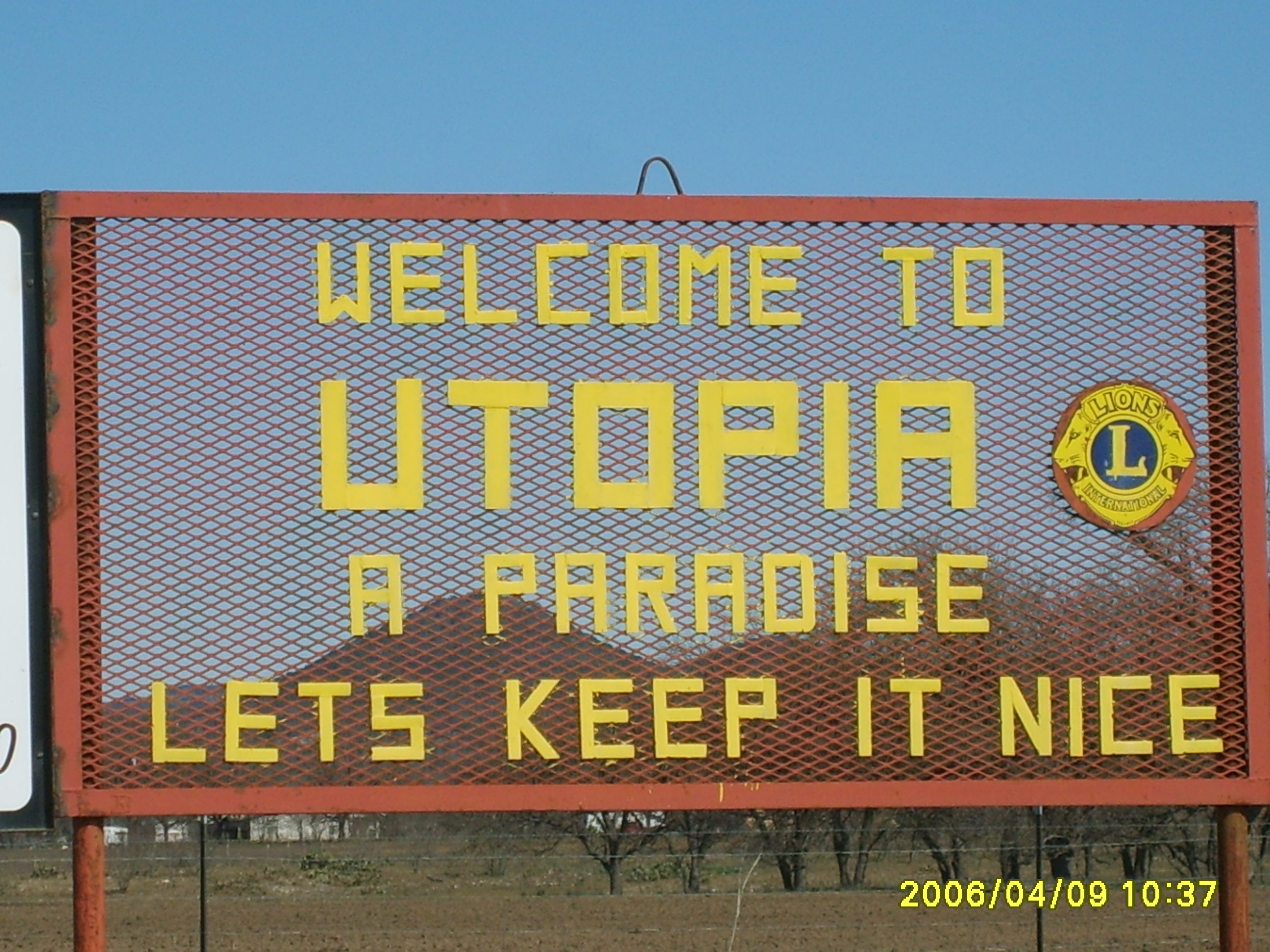
Texas Small Town History Project Palo Alto College |
|
Natalie Lopez History 1302 |
Natalie Lopez April 10, 2007 |
Utopia, Texas |
|

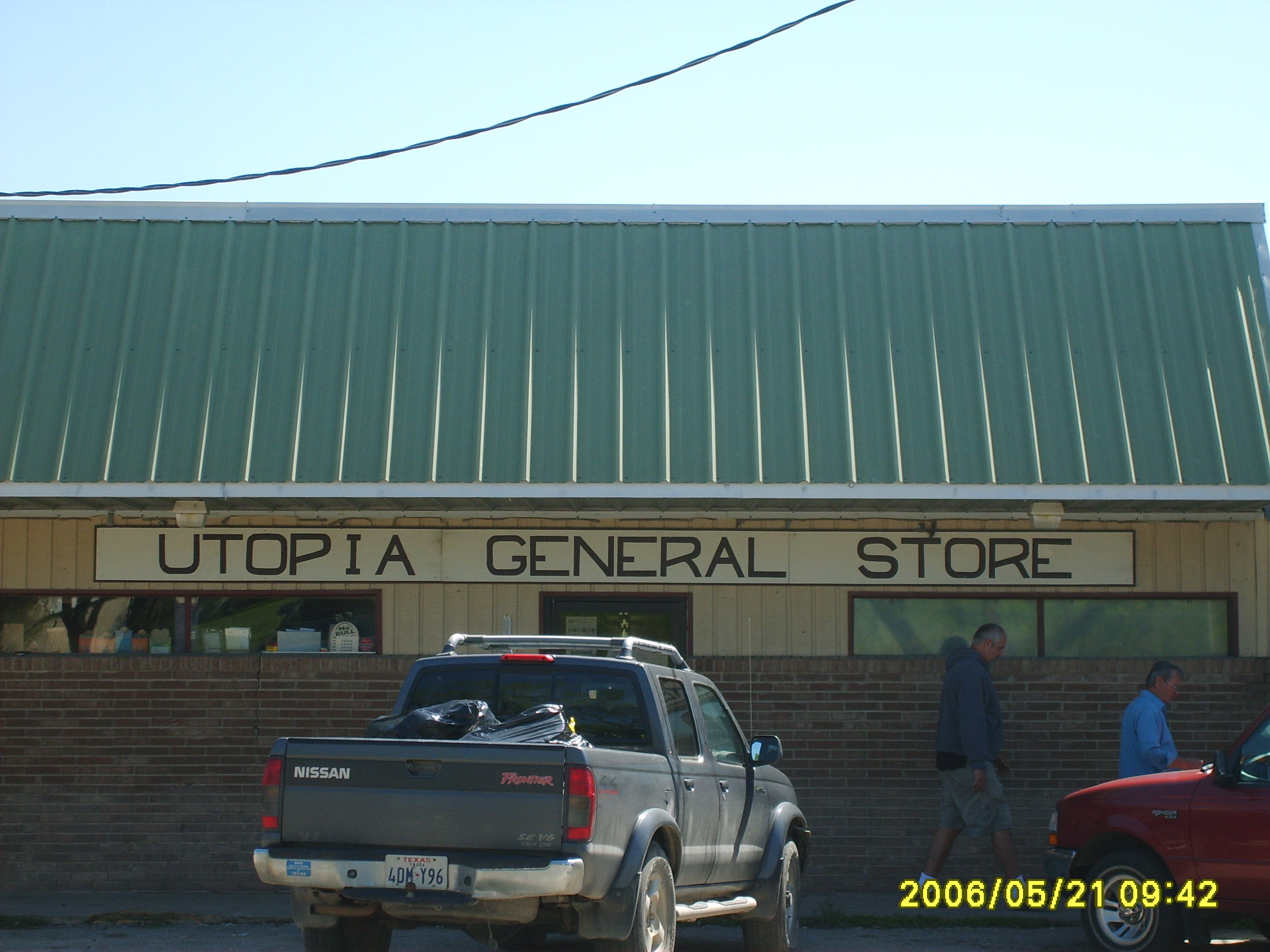 Utopia General Store, Sabinal Canyon Museum, the Library, Utopia School, and the Lost Maples Café, and the Paradise Pizza. Hidden Treasures was the first stop that I made when I arrived in Utopia to ask questions to see if I could talk to someone about the town. A woman there recommended that I'd go either to Lost Maples Café or Utopia's General Store. These two places happened to be the place to hang out for the
"old timers." I pulled over on the side of the road and began to walk around the town. While I was walking I noticed a small cement building, it happened to be the first building built in Utopia. It was built in 1873. It was a two-story rock store. Later on they knocked down the top floor and just left the bottom floor. It is now a hardware store owned by Bob Miuldin.
Utopia General Store, Sabinal Canyon Museum, the Library, Utopia School, and the Lost Maples Café, and the Paradise Pizza. Hidden Treasures was the first stop that I made when I arrived in Utopia to ask questions to see if I could talk to someone about the town. A woman there recommended that I'd go either to Lost Maples Café or Utopia's General Store. These two places happened to be the place to hang out for the
"old timers." I pulled over on the side of the road and began to walk around the town. While I was walking I noticed a small cement building, it happened to be the first building built in Utopia. It was built in 1873. It was a two-story rock store. Later on they knocked down the top floor and just left the bottom floor. It is now a hardware store owned by Bob Miuldin. 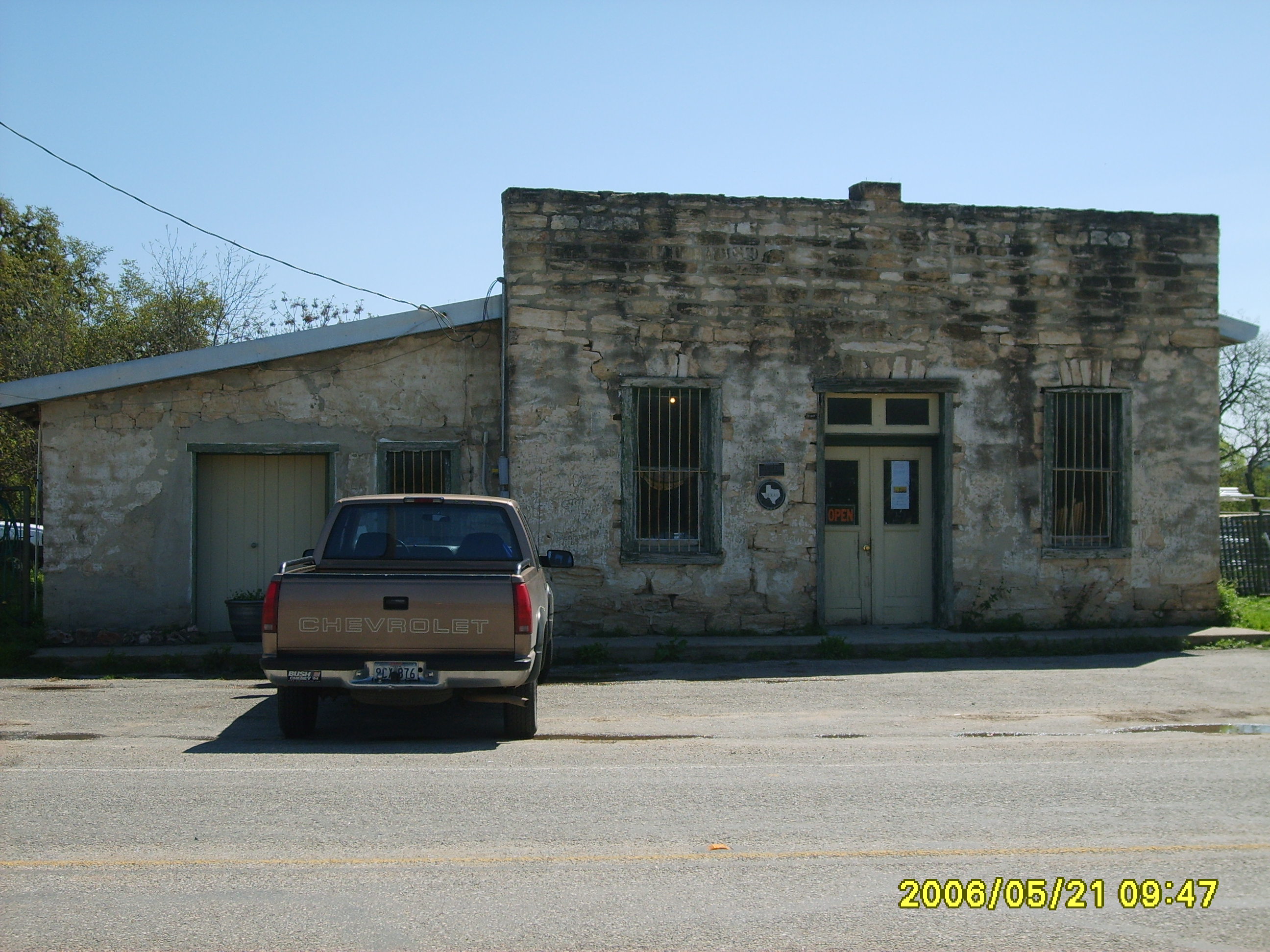 I went to the General Store, and I talked to the lady at the register and she said that she was a newcomer and she didn't know too much but she mentioned Morris Killough, who is the owner of the store. So I went further to the back of the store and saw some few men sitting down chatting. As I approached I waited for them to notice that I was standing and asked nervously because I wasn't too sure how their response was going to be, "Um, I'm looking for a Morris Killough?" And Mr. Killough answered. So I shook his hand told him who I was and why I was here in Utopia. I asked him a few questions and we talked for a little while and he said that he would be happy for me to interview him. Morris Killough moved to Utopia from San Antonio. He used to work for the owners of the Utopia General Store. He later bought it and is now the owner. He's now in the process of opening a new hardware store.
I went to the General Store, and I talked to the lady at the register and she said that she was a newcomer and she didn't know too much but she mentioned Morris Killough, who is the owner of the store. So I went further to the back of the store and saw some few men sitting down chatting. As I approached I waited for them to notice that I was standing and asked nervously because I wasn't too sure how their response was going to be, "Um, I'm looking for a Morris Killough?" And Mr. Killough answered. So I shook his hand told him who I was and why I was here in Utopia. I asked him a few questions and we talked for a little while and he said that he would be happy for me to interview him. Morris Killough moved to Utopia from San Antonio. He used to work for the owners of the Utopia General Store. He later bought it and is now the owner. He's now in the process of opening a new hardware store.
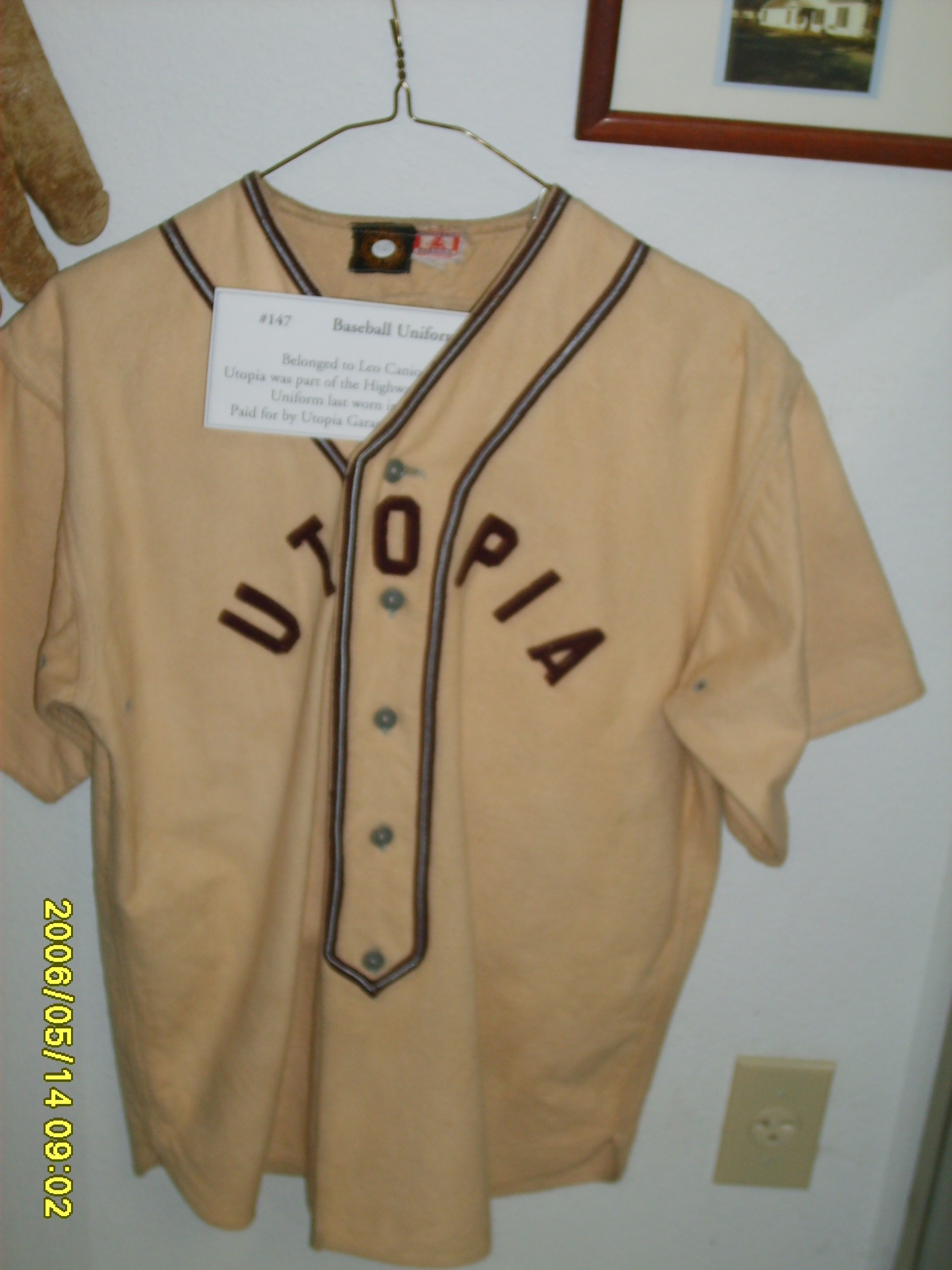 Mr. Trimble also allowed me to read an old newspaper article from Sunday January 15, 1989. The article talked about how the Sabinal Canyon Museum came to be. The idea was originated by Doug Bacon and his wife E.J. The article also said, "Utopia, originally named Montana, was formally established in 1884." This was interesting to me because further research clamed that another town had this name. A book that is known as Dedicated to the Settlers of Sabinal Canyon 1852-2002 contained short stories such as How Utopia Got It's Name by Mrs. W.L. Ames. She wrote, "The name Utopia was given by George A. Barker, who had come to this canyon in 1876 as a young man from Alabama, seeking health. George Andrew Barker was born on July 21, 1864 in Gainesville, Smith Co. Alabama." Mr. Barker came to this place in poor health and every morning winter or summer he took a swim in the Sabinal River before breakfast. It agree with him for he became a well man." Mr. Trimble told me about Betty Leighton in Vanderpool. He said that she had a lot of information to help me. So I drove north to Vanderpool and went to her house. She was outside her house feeding her cats when I approached her. I greeted her and explained what I was doing in Utopia and she was very happy knowing that I was going to be learning the history of Utopia. She also happily agreed to allow me to interview her. We scheduled to meet the next weekend at the Sabinal Canyon Museum.
Mr. Trimble also allowed me to read an old newspaper article from Sunday January 15, 1989. The article talked about how the Sabinal Canyon Museum came to be. The idea was originated by Doug Bacon and his wife E.J. The article also said, "Utopia, originally named Montana, was formally established in 1884." This was interesting to me because further research clamed that another town had this name. A book that is known as Dedicated to the Settlers of Sabinal Canyon 1852-2002 contained short stories such as How Utopia Got It's Name by Mrs. W.L. Ames. She wrote, "The name Utopia was given by George A. Barker, who had come to this canyon in 1876 as a young man from Alabama, seeking health. George Andrew Barker was born on July 21, 1864 in Gainesville, Smith Co. Alabama." Mr. Barker came to this place in poor health and every morning winter or summer he took a swim in the Sabinal River before breakfast. It agree with him for he became a well man." Mr. Trimble told me about Betty Leighton in Vanderpool. He said that she had a lot of information to help me. So I drove north to Vanderpool and went to her house. She was outside her house feeding her cats when I approached her. I greeted her and explained what I was doing in Utopia and she was very happy knowing that I was going to be learning the history of Utopia. She also happily agreed to allow me to interview her. We scheduled to meet the next weekend at the Sabinal Canyon Museum.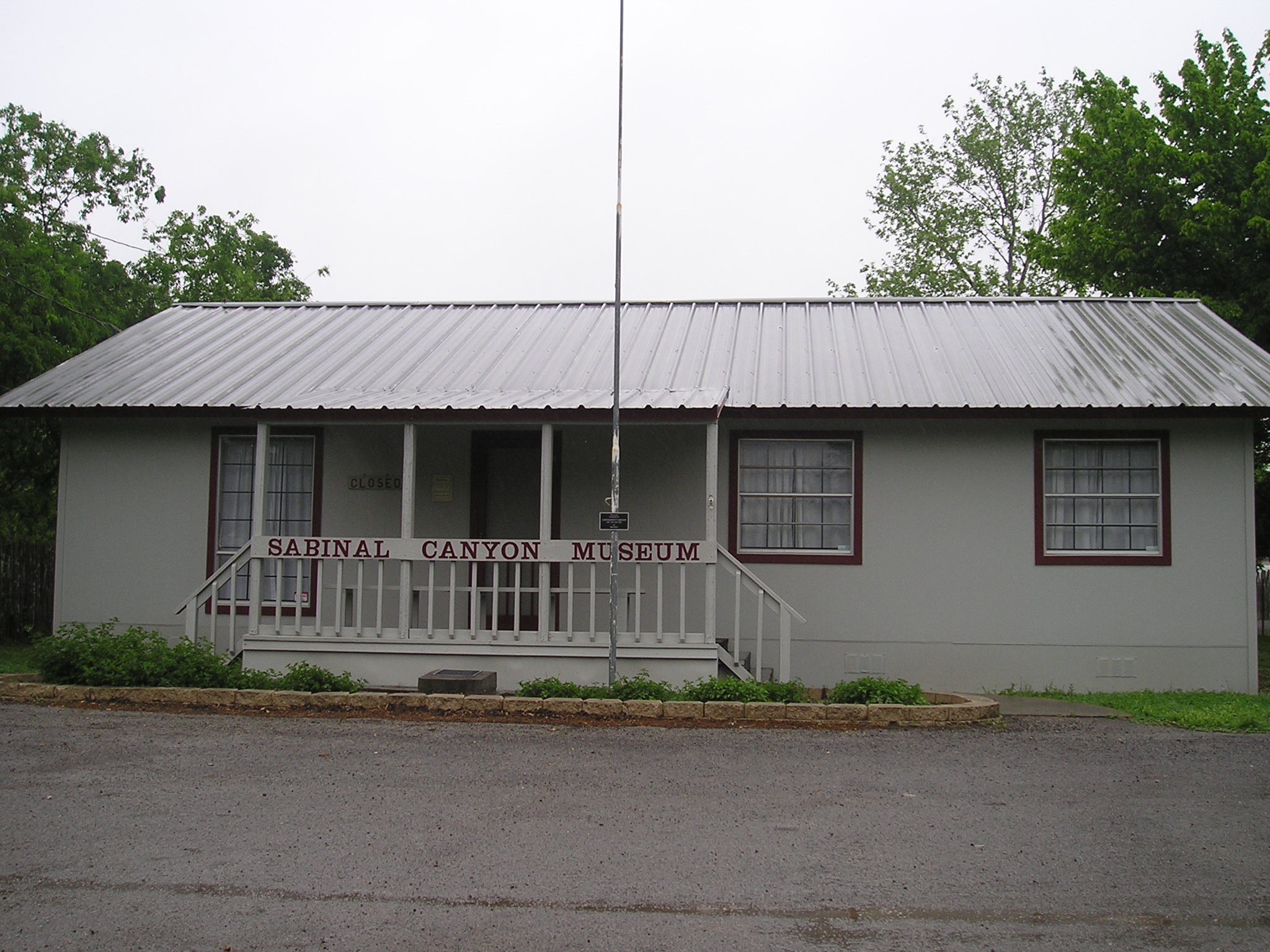 The next weekend I meet her as scheduled at 2pm and she took my father and I to eat their famous hamburgers at the Lost Maples Café.
The next weekend I meet her as scheduled at 2pm and she took my father and I to eat their famous hamburgers at the Lost Maples Café. 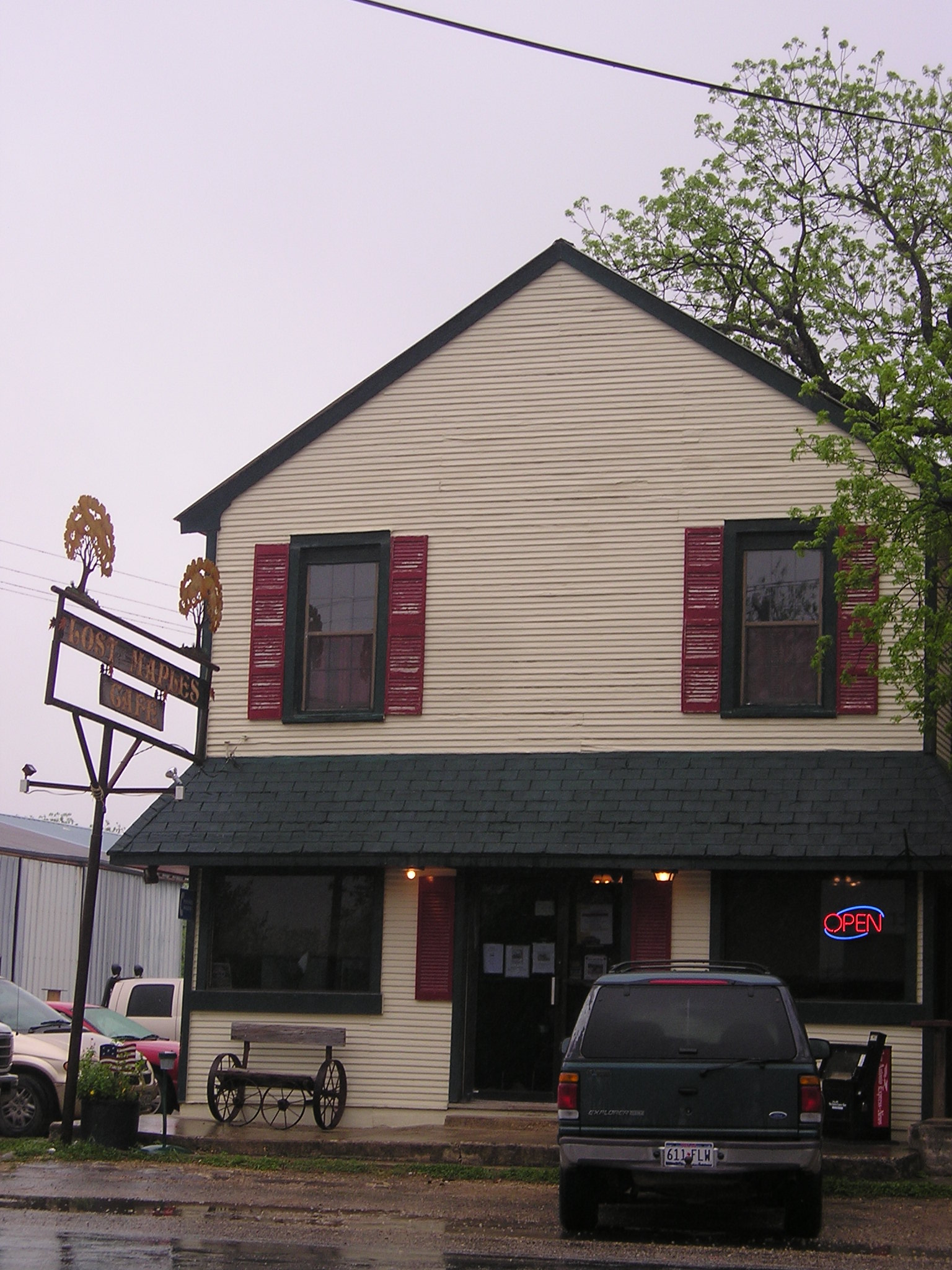
Natalie L.: Where were you born and raised?
Betty L.: Yes, I was born on a ranch about four miles north west of Utopia and we lived on Engelen Creek. And Engelen Creek was named after Mr. Engelen. I went to school at Utopia School for 11 years and my first year that we went to school we rode horseback four miles.
Natalie L.: Are you married with kids that live here with you?
Betty L.: I married my high school sweetheart, Kenneth Leighton.
Natalie L.: Do you know who the founding fathers of Utopia were?
Betty L.: Utopia started out, fact the first families moved into Utopia in 1852. I believe and there were several folks, older families that came in and they came mostly from Tennessee and Kentucky. They were English-Irish people and we had the Kincheloe and they built a big house right below the present Utopia and they established a little complex down there called Waresville. The Kincheloes were so generous they gave the land which is now the little park in Utopia itself and the first post office was in Waresville and they moved it to Utopia and called it Utopia. George Barker that came in the canyon here for his health, he was in bad health and he moved here and his health improved and he's the one that changed the name to Utopia, he thought it was the perfect ideal place. Of course during that time there was a lot of Indians in this country. In fact Mrs. Kincheloe, she was wounded real bad by the Indians. She and another lady were at home by themselves and the other lady was killed. Mrs. Kincheloe lived to be an old lady. They gave the land to the Methodist Church and the park and some other places here. So just little by little it grew and people moved in. My great-grandfather moved here from Missouri and he had been on cattle drive to two different times from California, this was right after the Civil War. He met up with some people from D'Hanis and Sabinal that's why he came to live in this country. He bought a large part of land with Mr. Gideon Thompson, he was another one of our first settlers. Then later they divided their property and owned quit a bit of land between Utopia and Vanderpool. And we had a little school in Vanderpool four miles from Utopia. Utopia School History was written by A.E. Umlang. Umlang mentions that "George A. Barker taught in a little church for the first three terms. In 1880 the first school house was built. About 1906 the old house was torn down and a new one was built".
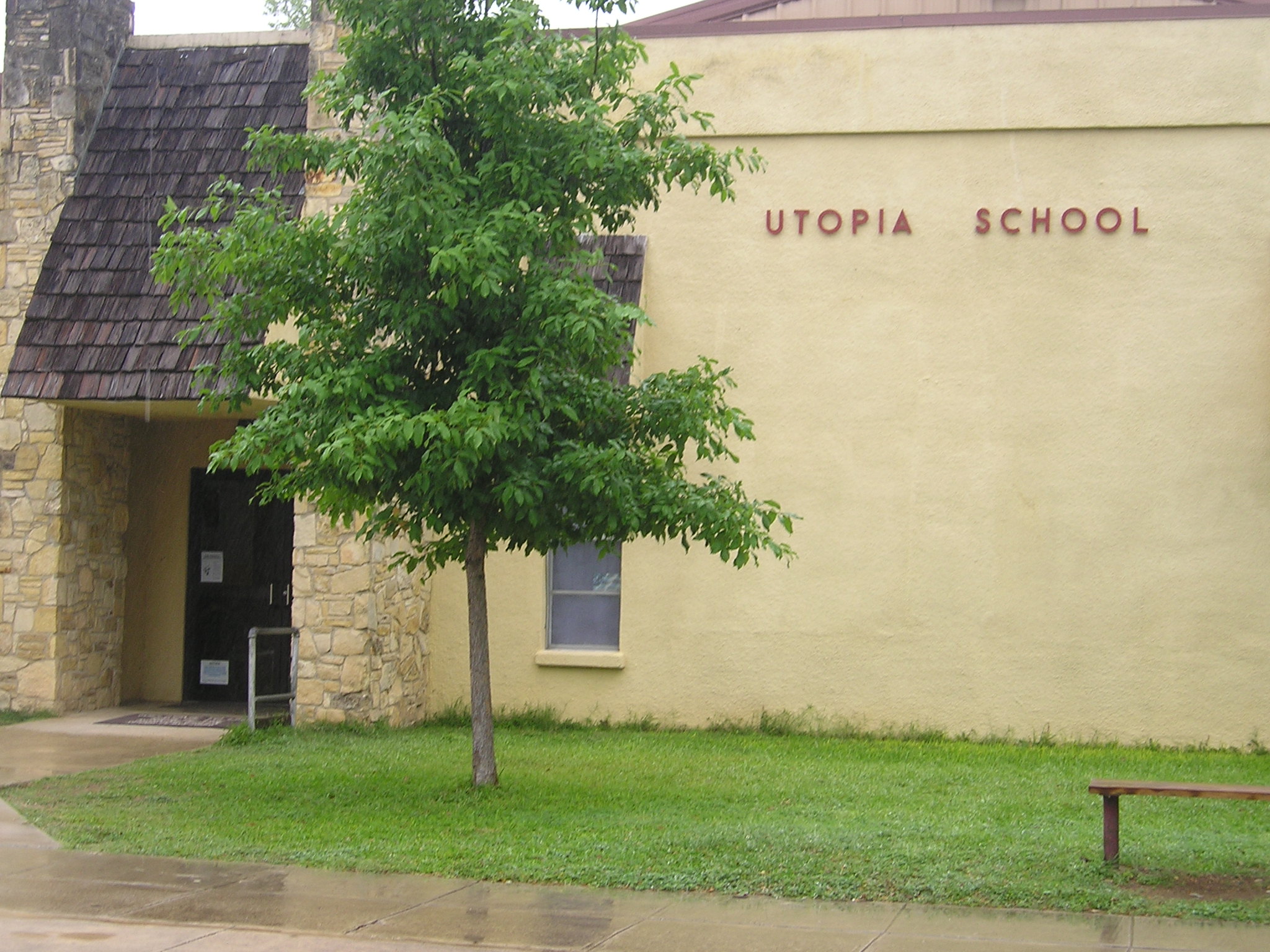
Natalie L.: How is the economy and agriculture today compared to how it used to be?
Betty L.: Well that land is just like every place else. Used to, people could of course it was cheap and hard to buy at the time but like back when my father was young man you could by the land but you could borrow the money from the bank and hard, hard work. When it was sheep and goat country, a lot of sheep and we sell the wool. My daddy had goats and not too many cattle. Just a little farming, people had their own corn and grow their gardens and their grain. They didn't have a lot of stock so it didn't take a whole lot. People worked awfully hard. It didn't take as much as it does now to live. And then people didn't have automobiles way, way back but today people have to be able to afford the land. You also have to have the money from some place else, a good job. As for the agriculture and the raising animals, it's pretty risky. A lot of people have a lot of cattle, sometimes that's good to do and sometimes you loose money on your cattle. A lot of bigger ranches like 3,000 acres, those people are wealthy usually come here from Houston, south Texas, and Dallas and they built high fences and put in exotic game. So the exotic game is competing with their native white-tail deer because the hunting was always been a plus for the ranchers, because they get more land for leasing their land to hunters. And most people have a job, the wife works and they either work in Hondo or Uvalde.
Natalie L.: How has technology changed the town?
Betty L.: Well we have facilities that we didn't have years ago. We also put the technology or whatever you call it for computers so tourists can be able to use when they come.
Natalie L.: Did Utopia ever get affected by railroads or highways at any time?
Betty L.: Well we never had the railroad here, our railroad is in Sabinal. Way, way back my father would drive the cattle to Sabinal and they would pin them and wait till the trains came by and they'd load them on. I have seen in my life and I'm 81 years old, the changes from an old gravel road up from Sabinal all the way to Vanderpool. There was no gravel road that went from Utopia to Bandera. So I don't remember the year that the highways were put in. It was put in a strip at a time, first from Sabinal to Utopia, then part way to Vanderpool, part way to Bandera, then Leaky.
Natalie L.: Is Utopia known for any natural disasters like flooding or drought?
Betty L.: We had some droughts and the worst one that we've had in my lifetime was in seven years in the 50's. Some of the ranchers and families had to move out because they just couldn't make it. There was no grass, couldn't afford to buy the feed, the hay and the pellets for your life stock. One thing right now that I think is interesting, a lot of families that have moved away from here and gotten good jobs, raising their own families in the cities they realized they're wanted to come back to Utopia. Even though it's hard work, they want to come back their children in our schools. Our school is safe, we have wonderful teachers, caring people and so these younger people are willing to leave their good paying jobs that they had in Houston, San Antonio or Dallas to move back to Utopia and take smaller jobs.
Natalie L.: Did you ever hear of any instances of racial discrimination in this neighborhood?
Betty L.: Not really, when I was a child most of the little places especially farming they would do what you call sharecropping like in South Texas. They had a Mexican family that lived on the ranch. The wife would do house work for other people then they'd give portion of the crops. My grandfather had a family for years, they didn't get paid much but they had a good place to live. They had to milk the cow, eggs, milk, butter and help with the garden. They got to eat the vegetables. It was just really sharing. We loved all those people there wasn't any discrimination or anything. They were part of our family. We never really had blacks in our community. The only blacks that I remember is if someone would bring them from Houston seasonal like hunting season. We just welcome them.
Natalie L.: Where do you think the town is going to be in the future?
Betty L.: It'll grow, I can't foresee. Right now the growth within the last 10 years has been they we have several different lodges. People are very happy in renting out their vacant homes. We have more restaurants like the Lost Maples Café. And people come here for vacation; use this for their place to stay. I don't know what's going to happen.
Natalie L.: What was Utopia known for?
Betty L.: FUN! Good place to live. People come back to the rodeo or to the bar-b-que.
Natalie L.: What is Utopia's form of city government?
Betty L.: We don't have any form of city government. Our main organization, our pride is our Lion's Club. It's like the link that holds us all together. We all support the Lion's Club, we have an auction once a year. And the money all divides in going to all our other clubs here in Utopia. The best thing that we have going for our community is our EMS. It's the top EMS in Texas. We've been written up in a lot of different magazine as the ideal EMS. Up until lately it's been all voluntary.
Natalie L.: How do you or the town feel about Utopia expanding?
Betty L.: Well I guess change is hard. I've always tried to be up to date and go with the change. I think we've been fortunate here, we had some changes but I think it's been all for the better. We try to see all the good side of the change.
Natalie L.: Were any of your relatives affected by the Great Depression? If so, how did it affect Utopia?
Betty L.: Yes, very much affected. In my immediate family, my aunt and uncle had owned land about couple of thousand acres ranch. My uncle had just over-extended himself in borrowing money from the bank. He had a lot of sheep on his ranch. The banks went under and there was no way he could have paid the bank. A lot of people through the years they found work in California and sent word back to Utopia and friends would go over there to work in 1936. It was hard times, families had to move out, and they sold their land and sheep. But there were some families that had good credit and they would borrow money from the banks that stayed open and they'd start a little business. It was tough times; it sure affected this community a lot. My children are fifth generation, my roots are pretty deep, and both my great-grandfathers lived here, like all other families. You better be careful not to talk about other people, they might all be related. We're a dry town; you had to bring you beer in. Several times they've tried to vote in having alcoholic beverages and it's been turned down. I don't know any particular reason except that old timers thought there was no reason to have beer joint. We go to church on Sundays and it's about safety.
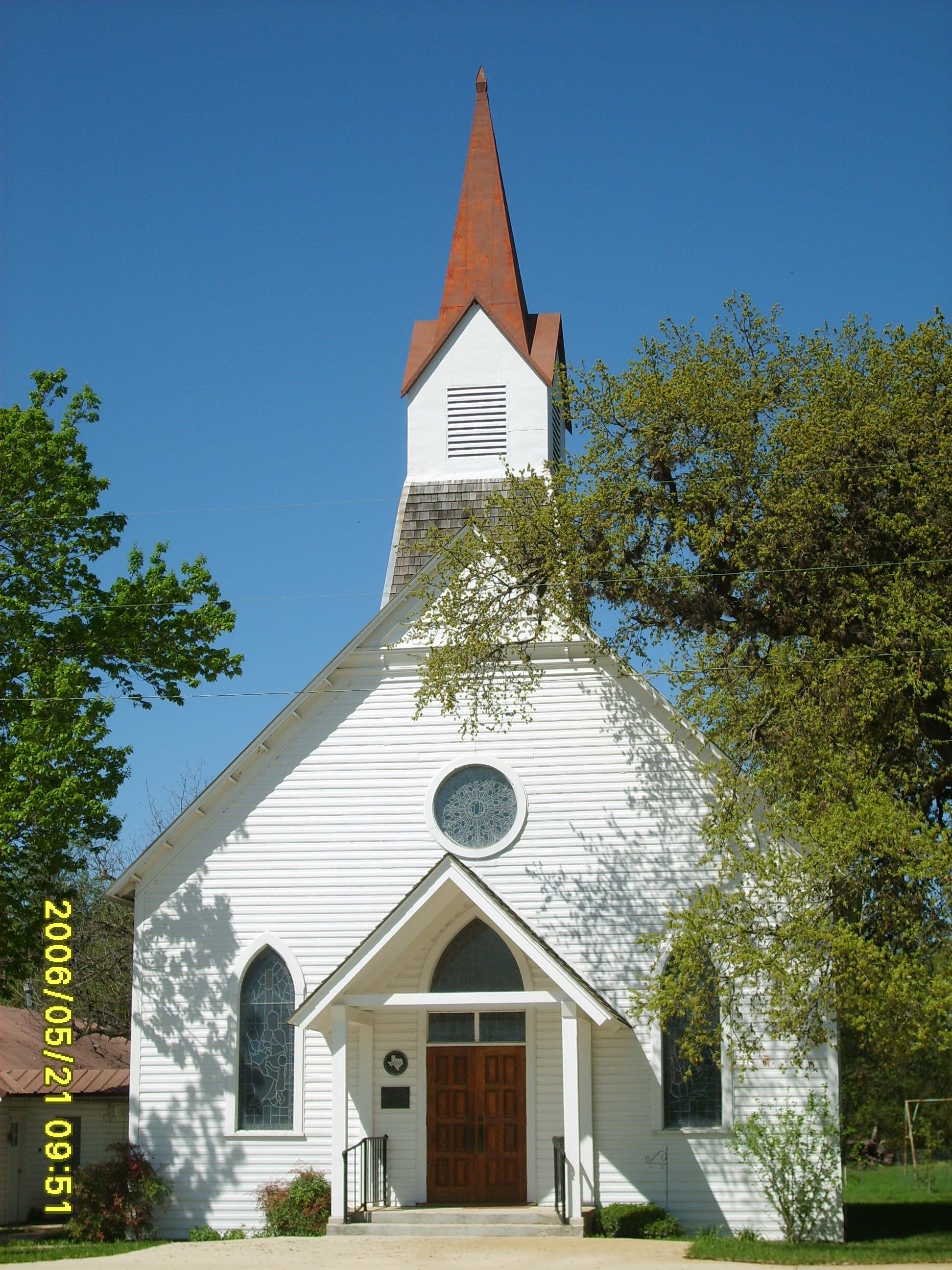 In 1859 Utopia was made a mission of the Rio Grande Conference that had been established in 1858 by the General Conference in Nashville, Tennessee.
In 1859 Utopia was made a mission of the Rio Grande Conference that had been established in 1858 by the General Conference in Nashville, Tennessee.
Bibliography:
Utopia Centennial Souvenir Booklet.
Umlang, A.E. "Utopia School History."
Utopia Centennial Souvenir Booklet.p.14Goldmand, Jonathan L. and Sparks, Andrew N. Webster's New World Student's Dictionary. 1996
Interview with Betty Leighton and Morris Killough.
Special thanks for Mr. Barnie Trimble and Bob Miuldin.